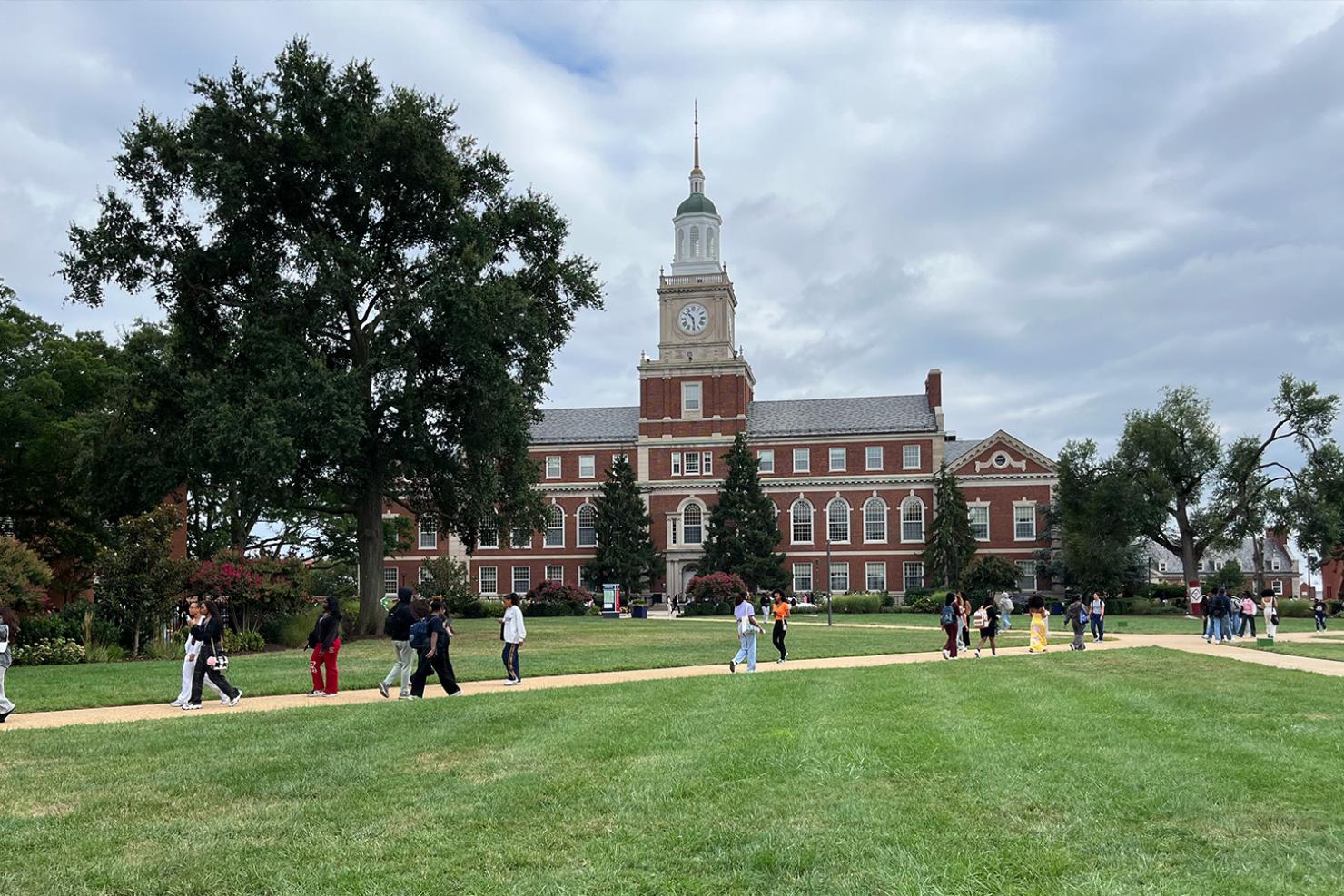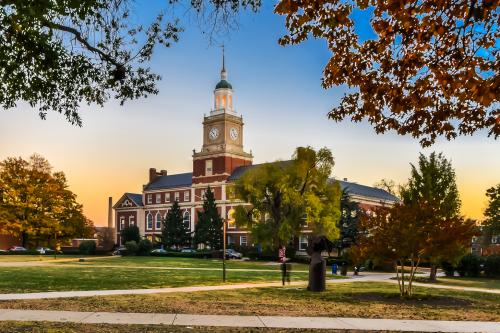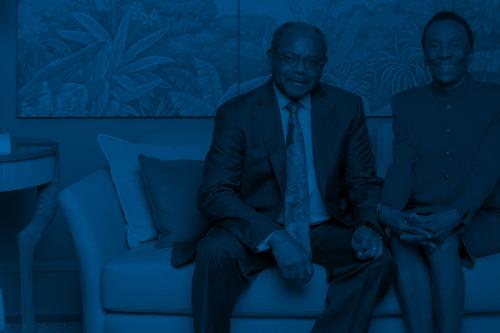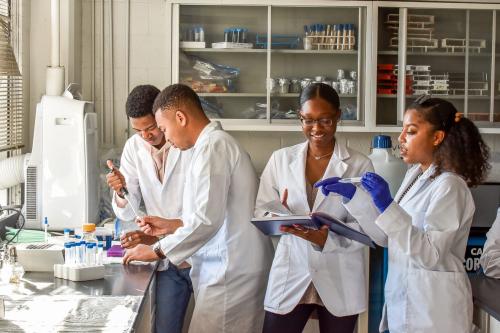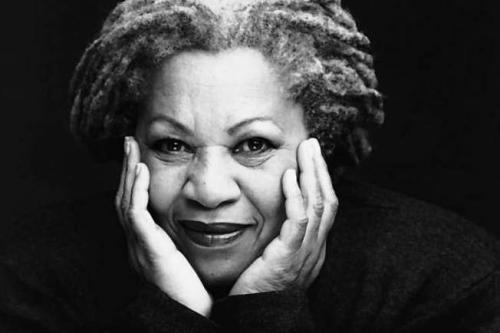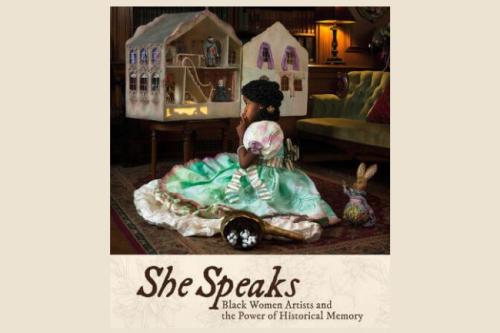Above image: The Yard on Howard University's campus near the beginning of the fall 2025 semester. Photo by Cedric Mobley.
Howard University has received one of the largest gifts in its history, an $80 million investment from philanthropist MacKenzie Scott, who continues to make transformative gifts to higher education institutions, including historically Black colleges and universities (HBCUs). When combined with gifts of $40 million and $12 million to Howard in 2020 and 2023, respectively, this gift brings Scott’s recent contributions to Howard to $132 million. The $80 million is an unrestricted gift to Howard University and Howard University College of Medicine.
The gift will be used to accelerate Howard’s momentum and impact at the forefront of higher education research and student development. This year, the Carnegie Foundation and American Council on Education designated Howard as an R1 institution, a recognition reserved for colleges and universities with the highest levels of research activity in the nation. Also this year, LinkedIn and Forbes named Howard the nation’s top HBCU and U.S. News and World Report ranked Howard’s programs in business, computer science, economics, psychology and criminal and constitutional law, among others, as the best programs among HBCUs.
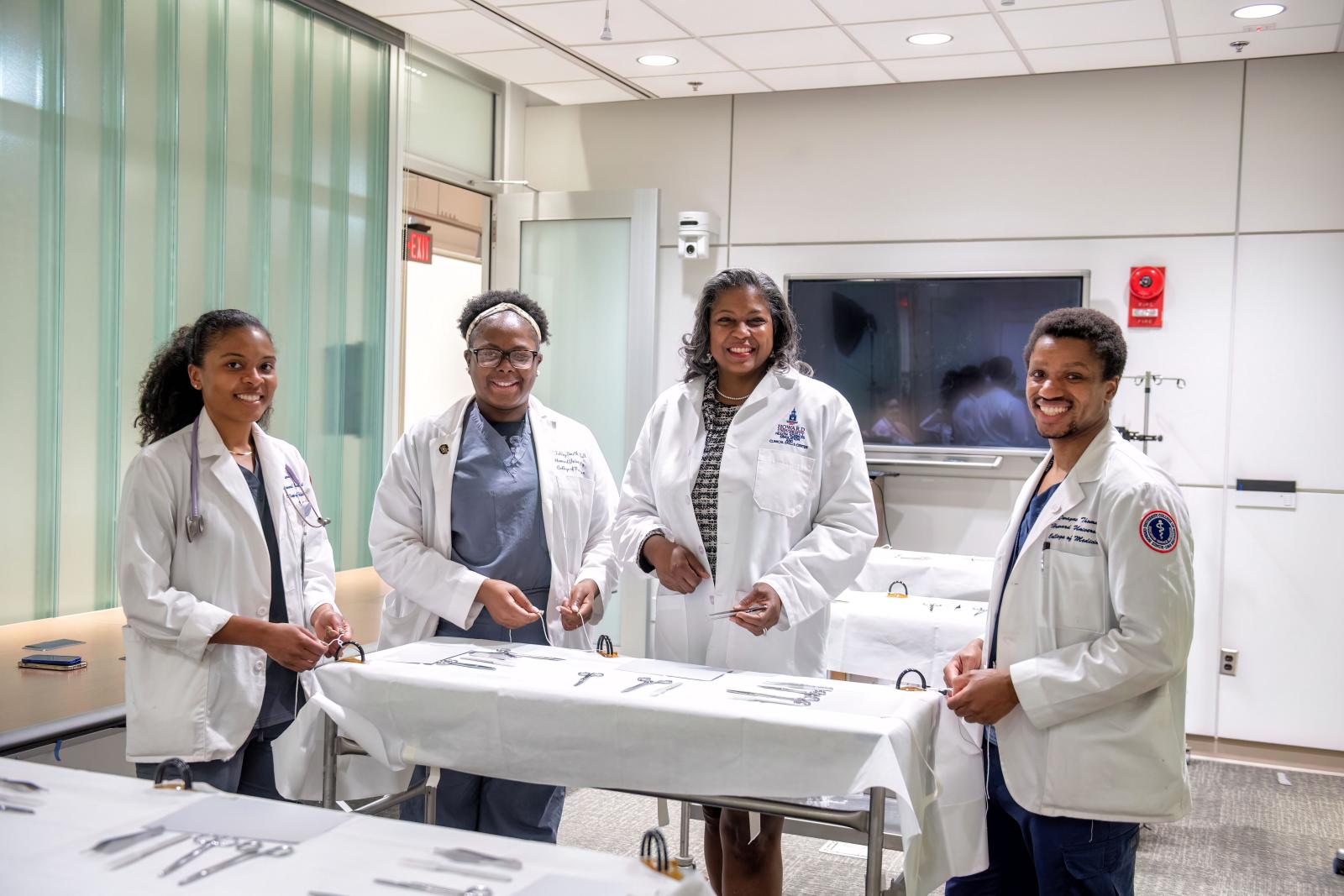
Scott has been one of the most impactful and consequential supporters of higher education, having made transformative gifts to numerous colleges including HBCUs. According to People, she has given more than half a billion dollars to HBCUs since 2019. A report by Rutgers University found that her funding has helped the schools bolster retention, attract students and faculty, and enhance their campus infrastructures.
Howard’s College of Medicine will receive an earmarked $17 million, which will be used in part to support a new Academic Medical Center, a transformative facility in line with the innovation center funded through Scott's $12 million in 2023. That center, developed by the College of Medicine in partnership with the College of Engineering and Architecture, helps students explore technologies that can improve patient care and expand the frontiers of science.
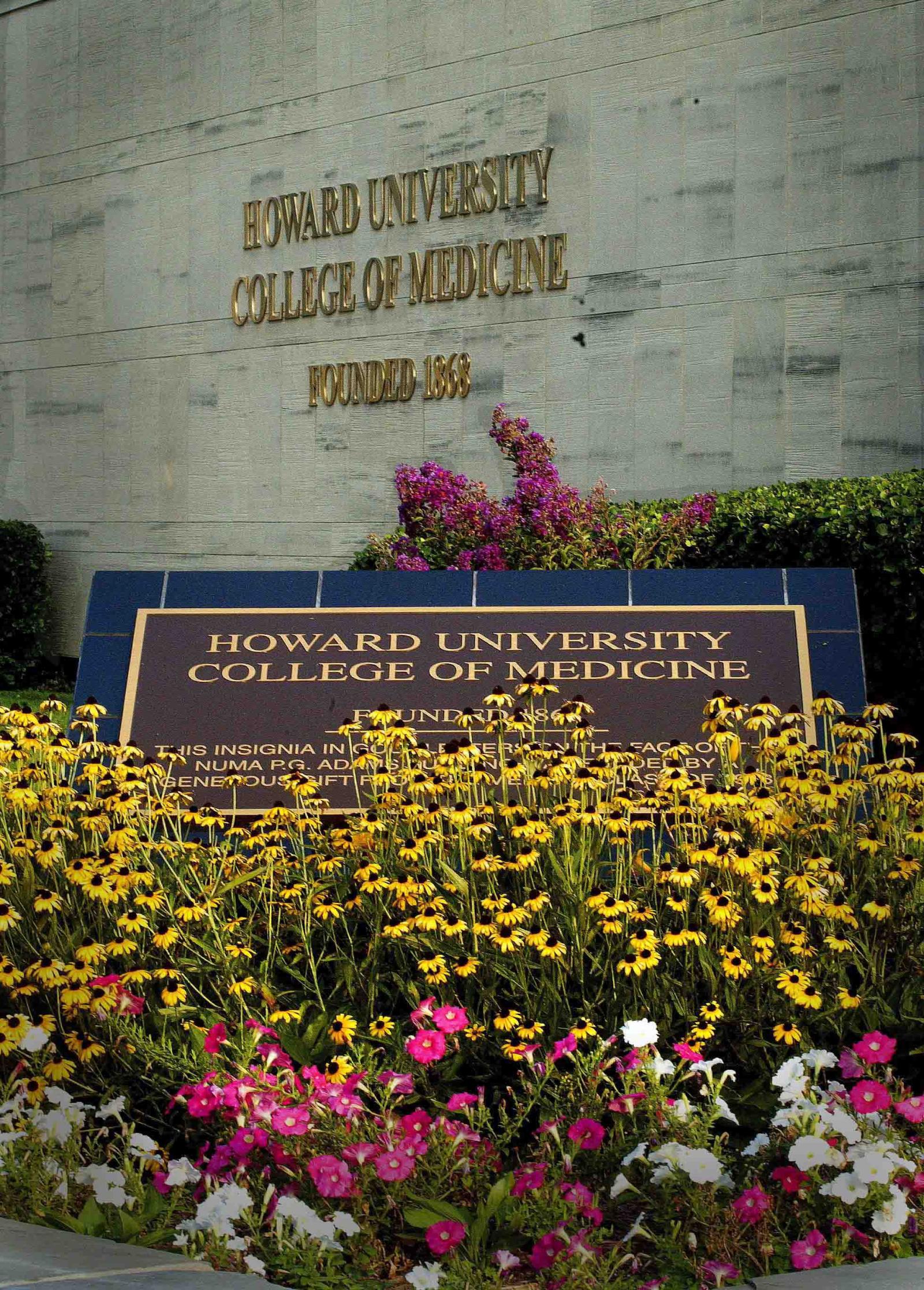
Howard’s College of Medicine occupies a unique place in both higher education and the American medical community. Established in 1868, just one year after Howard University’s founding, it is the first and oldest medical college at an HBCU. For much of its existence, Howard and Meharry Medical College trained most Black doctors in America. Students in Howard’s College of Medicine have consistently perfected their life-saving craft by learning from some of the most consequential doctors and surgeons in the world, including Dr. Charles Drew, who created the nation’s first mobile blood banks using his patented blood plasma preservation technique, saving countless lives. Other faculty members have included Dr. LaSalle D. Leffall Jr., the first Black president of the American Cancer Society and the American College of Surgeons; Dr. Clive Callender, founder of the National Minority Organ Tissue Transplant Education Program which dramatically increased the number of organ donors from minority groups; and current Dean Dr. Andrea Hayes Dixon, who was the nation’s first Black female pediatric surgeon, was the first surgeon in the world to perform a high-risk, life-saving procedure in teens with rare forms of abdominal cancer, and is president of the American Pediatric Surgical Association. As an example of its impact, Howard’s College of Medicine has the most graduates practicing in primary care of any college or university in the Washington, D.C. metropolitan area, according to a 2025 U.S. News and World Report ranking.
Other aspects of the gift will be used to support the academic progress of the world-class student body, 70% of which has a large financial need. More than 40% of Howard students are Pell-grant eligible, and a third are the first in their families to attend college. Recent changes to federal funding for college students, including eligibility and lowered caps on funding amounts, make it even more important for the university and its donors to provide financial assistance to the talented students who will follow in the footsteps of other Bison in world-changing leadership, regardless of their economic background.
Howard’s success in preparing economically challenged students for successful careers was recognized multiple times this year. U.S. News named Howard as the top college or university in the Washington, D.C. metropolitan area for social mobility. Carnegie and ACE placed Howard among the nation’s top Opportunity Colleges and Universities – High Access and High Earnings, a designation for colleges and universities which provide access to high-quality education for students regardless of their socioeconomic or cultural background and prepare those students to earn relatively high wages in the context of their geographic locations. Among Opportunity Colleges and Universities with a Research One (R1) designation, Howard had the highest “access” ratio, based on “enrollment of Pell Grant recipients and students from underrepresented racial/ethnic groups compared to a similar population in their area.” According to the listing, Howard graduates had the highest median earnings eight years after graduation among HBCUs.
The unrestricted support will also buttress the university's engagement in capital construction and renovation projects which are providing the types of facilities and resources needed to support its critical R1-level research in artificial intelligence, automation, scientific discovery, public health, social progress, and numerous other areas. It is also developing living, learning, and commercial spaces designed to attract the nation’s highest-performing students, including Black men. Part of the gift will also be put into a reserve fund to mitigate against situations like the government shutdown, which has delayed distribution of federal appropriations for Howard, the nation’s only Congressionally-chartered HBCU.
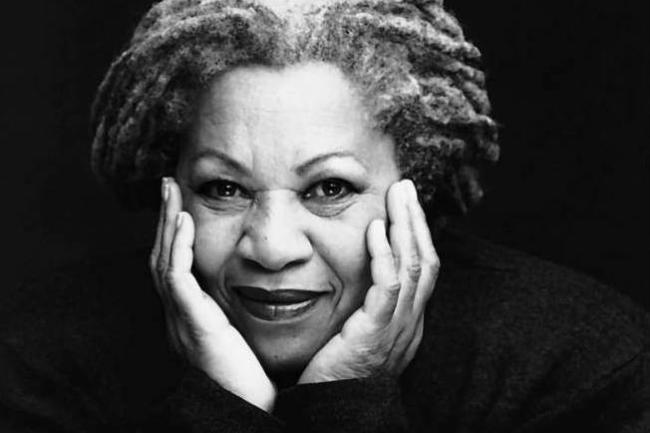
Though Scott has undoubtedly helped change the trajectory of higher education through her generosity to HBCUs and other institutions, her relationship with Howard is special. Nobel laureate Toni Morrison (B.A. '53, DHL '95) a Howard alumna and former faculty member at Howard and Princeton University, was Scott’s thesis adviser and close friend. Part of Scott's 2020 gift was used to establish the Toni Morrison Endowed Chair in Arts and Humanities at Howard.
After leaving Howard, Morrison worked as a legendary editor at Random House before taking a role as a professor at Princeton University, where she taught literature, writing, and African American studies. There, she met Scott.
Scott’s life had been marked by shifting fortunes. Raised in the San Francisco area, she enjoyed a comfortable upbringing until her family financial troubles forced an abrupt turn. She graduated early from an elite boarding school. Although she went on to Princeton, a loan from a friend helped her remain enrolled. At a dedication of a building at Princeton named for Morrison, Scott revealed that she had come to Princeton with a wish to take a class from Morrison.
As a college student, Scott’s talent and dedication distinguished her in Princeton’s prestigious creative-writing program in which Morrison taught and earned her a coveted place as one of Toni Morrison’s advisees. Under Morrison’s guidance, Scott’s senior thesis was a novella titled “The Fathering Water,” about a man who conceals his unemployment by maintaining the illusion of success. Scott has been vocal about her appreciation for the lessons Morrison taught her about writing and beyond. Scott said that Morrison's effectiveness as a teacher in addition to her prowess as a writer and editor showed her that you can have an impact in multiple ways. It is an approach she applies to her philanthropy.
"This writer that I admired so much also turned out to be such a gifted and devoted teacher," Scott said at the dedication for Princeton's Morrison Hall. “She has given me a real example of a life of passionate devotion to more than one calling.”
The adviser–student relationship eventually grew into a friendly one, as often happens after thesis or dissertation work. Letters preserved at Princeton reveal years of exchange between the two women. In one handwritten note, Scott thanked Morrison for her “criticism and encouragement, therapy and breathing lessons.”
Morrison gave a telephone reference that helped Scott land a job in finance with the investment management firm Shaw & Company that would prove pivotal in her life. At that firm, Scott’s office was next door to that of Jeff Bezos, the man she would later marry.
Before she took the job in finance, Scott told Morrison about her exhaustion from waiting tables in New York and her hopes of sustaining a life in writing. Even as Scott’s life changed — marriage, motherhood, co-founding Amazon — she continued to seek Morrison’s feedback. When she completed her debut novel, “The Testing of Luther Albright,” Morrison shared detailed comments and encouragement.
“Your hand is sure, your technical ability sophisticated,” Morrison offered. “Don’t worry about overdoing it at this point. It is so much easier to cut back than to write up.”
The mentorship paid off as Scott won the American Book Award for her the novel.
Scott’s gifts to Howard bring her relationship with Morrison full circle, providing support for generations of talented change-makers at Morrison’s alma mater as Morrison supported her in her academic and career journey.


